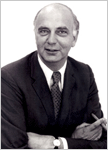-
- About the New York Fed
- What We Do
- Communities We Serve
-
More About Us
-
At the New York Fed, our mission is to make the U.S. economy stronger and the financial system more stable for all segments of society. We do this by executing monetary policy, providing financial services, supervising banks and conducting research and providing expertise on issues that impact the nation and communities we serve.

The New York Innovation Center bridges the worlds of finance, technology, and innovation and generates insights into high-value central bank-related opportunities.

Do you have a request for information and records? Learn how to submit it.

Learn about the history of the New York Fed and central banking in the United States through articles, speeches, photos and video.
-
- Markets & Policy Implementation
-
- Reference Rates
- Effective Federal Funds Rate
- Overnight Bank Funding Rate
- Secured Overnight Financing Rate
- SOFR Averages & Index
- Broad General Collateral Rate
- Tri-Party General Collateral Rate
- Desk Operations
- Treasury Securities
- Agency Mortgage-Backed Securities
- Repos
- Reverse Repos
- Securities Lending
- Central Bank Liquidity Swaps
- System Open Market Account Holdings
- Primary Dealer Statistics
- Historical Transaction Data
-
- Monetary Policy Implementation
- Treasury Securities
- Agency Mortgage-Backed Securities
- Agency Commercial Mortgage-Backed Securities
- Agency Debt Securities
- Repos & Reverse Repos
- Securities Lending
- Discount Window
- Treasury Debt Auctions & Buybacks
as Fiscal Agent - INTERNATIONAL MARKET OPERATIONS
- Foreign Exchange
- Foreign Reserves Management
- Central Bank Swap Arrangements
- ACROSS MARKETS
-
- Economic Research
- U.S. Economy
- Consumer Expectations & Behavior
- Growth & Inflation
- Economic Heterogeneity Indicators (EHIs)
- Multivariate Core Trend Inflation
- New York Fed DSGE Model
- New York Fed Staff Nowcast
- R-star: Natural Rate of Interest
- Labor Market
- Financial Stability
- Corporate Bond Market Distress Index
- Losses from Natural Disasters
- Outlook-at-Risk
- Treasury Term Premia
- Yield Curve as a Leading Indicator
- Banking
- RESEARCHERS
-
- Financial Institution Supervision
- Bank Applications
-
As part of our core mission, we supervise and regulate financial institutions in the Second District. Our primary objective is to maintain a safe and competitive U.S. and global banking system.

The Governance & Culture Reform hub is designed to foster discussion about corporate governance and the reform of culture and behavior in the financial services industry.

Need to file a report with the New York Fed? Here are all of the forms, instructions and other information related to regulatory and statistical reporting in one spot.

The New York Fed works to protect consumers as well as provides information and resources on how to avoid and report specific scams.
-
- Financial Services & Infrastructure
-
The Federal Reserve Bank of New York works to promote sound and well-functioning financial systems and markets through its provision of industry and payment services, advancement of infrastructure reform in key markets and training and educational support to international institutions.

The New York Innovation Center bridges the worlds of finance, technology, and innovation and generates insights into high-value central bank-related opportunities.

The growing role of nonbank financial institutions, or NBFIs, in U.S. financial markets is a transformational trend with implications for monetary policy and financial stability.

The New York Fed offers the Central Banking Seminar and several specialized courses for central bankers and financial supervisors.
-
- Community Development & Education
-
- Staff
-
Fed System Initiatives
- Other Community Development Work
- Calendar
-
 Paul Volcker became president on August 1, 1975, at the age of 47. As president, he also served as vice chairman of the FOMC. Previously he served in a variety of positions with the Treasury, Chase Manhattan Bank, and the New York Fed. Paul Volcker became president on August 1, 1975, at the age of 47. As president, he also served as vice chairman of the FOMC. Previously he served in a variety of positions with the Treasury, Chase Manhattan Bank, and the New York Fed. Mr. Volcker was born on September 1927 in Cape May, New Jersey. He earned a bachelor of arts degree, summa cum laude, from Princeton in 1949, and a master of arts degree in political economy and government from the Harvard University Graduate School of Public Administration in 1951. From 1951 to 1952, he was Rotary Foundation Fellow at the London School of Economics. Mr. Volcker's experience with the New York Fed began when he worked as a research assistant in the research department during the summers of 1949 and 1950. He returned to the New York Fed as an economist in the research department in 1952, and became a special assistant in the securities department in 1955. Two years later, he resigned to become a financial economist at Chase Manhattan Bank. In 1962, he joined the Treasury as Director of the Office of Financial Analysis, and in 1963 he was appointed Deputy Undersecretary for Monetary Affairs. In 1965, he rejoined Chase Manhattan as vice president and director of forward planning. From 1969 to 1974, he was Undersecretary of the Treasury for Monetary Affairs. His five-and-a-half-year tenure covered a period of rapid change in international and domestic financial affairs. After leaving the Treasury, Mr. Volcker became senior fellow at the Woodrow Wilson School of Public and International Affairs at Princeton University for the 1974-75 academic year. He was named chairman of the Board of Governors of the Federal Reserve System by President Carter, and was sworn in on August 6, 1979. He served until August 11, 1987. |


